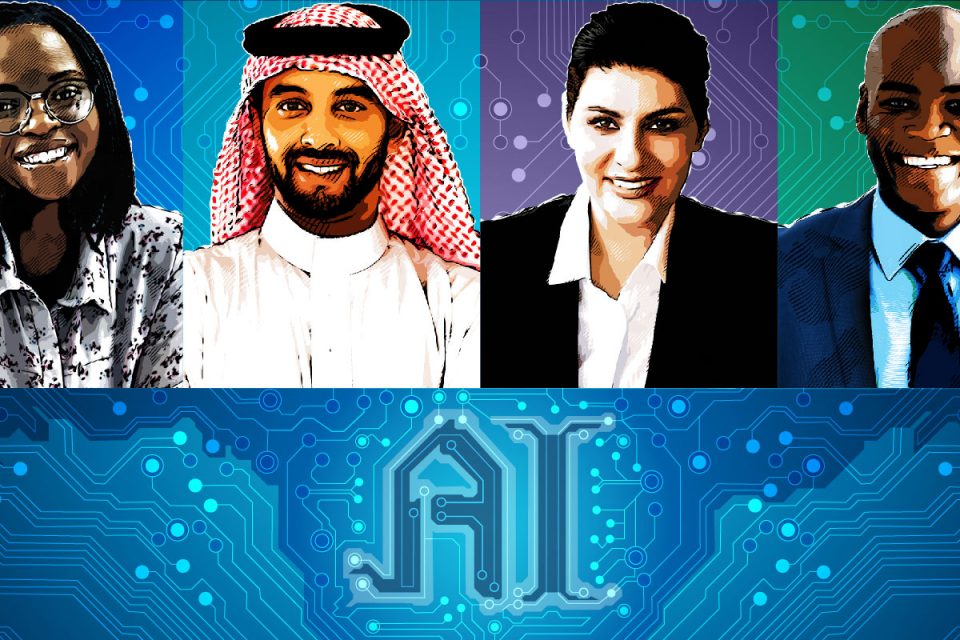In the 1980s, my older brother started his career in the tech industry. At a critical time in my life, his leadership and work opened my eyes to new possibilities and a career path. It was exciting to be a part of the early advancements in computing but there were also hard circumstances to manage. I grew up in Lebanon and was nine years old when the civil war began. The war continued for the next 15 years. That meant I always had to be in two places: navigating the challenging reality of the present, while moving toward a different and better future.
It’s no different in the Middle East and Africa: when it comes to AI, we want to focus on the finish line, but before we arrive, we have an exciting journey ahead of us.
Today, in Africa and the Middle East, we have a similar task before us. Advancements in cloud computing and AI continue to shape our world, opening up possibilities for social and economic progress. To reach our potential, we must answer the question: how do we navigate from here to there?
It starts with understanding. Part of my work involves helping people move beyond hype, misconceptions and fears. Beyond talk of AI solving all of our problems or jobs giving way to automation, if we work to comprehend and envision this technology as a force for good, we’ll be in a better place to bring these emerging AI markets to maturity and achieve digital transformation.
What does digital transformation mean?
Digital transformation is an idea I find both powerful and familiar because it’s a forward-looking process of change, based in the realities on the ground. It’s about what’s currently happening in these regions and what’s possible.
It can be as simple as improved customer service, like chatbots in the financial industry in places like Nigeria that assist people with financial transactions. Or it can be more complex and consequential like the efforts of Affectiva in Egypt to help machines better read human emotions for things like interviewing job candidates or addressing mental health issues.
On a broader scale, in the United Arab Emirates, the government has launched a comprehensive cross-sector strategy. The strategy focuses on enabling the next generation AI technology in ways that safeguard resources and save lives. For example, in transportation, health, and the environment the strategy seeks fewer accidents, increased efficiencies and improved health outcomes.
Digital transformation extends to changes in economies. The economic potential in the United Arab Emirates alone is predicted at 14 percent of GDP by the year 2030. In Saudi Arabia, that number is 12.4 percent or US$135.2 billion. That means a diversification from oil and gas to an economy of innovation with manufacturing, mining and public service industries to see the most benefit. In Africa, we see diversification from extractive industries like agriculture to consumer goods, banking and telecommunications, with more investment in infrastructure.
While a diverse and strong economy can bring prosperity to more people, AI’s potential to transform society goes well beyond economics. In the financial sector, machine learning can be used in fraud detection. In Cape Town South Africa, AI company Aerobotics is working on agricultural improvements applying information to detect pests and problems earlier. AI also can solve problems in other areas, like water scarcity, food supply issues, creating a cure for malaria, or giving people like Mirembe, who lives in a small village in Uganda, access to digital healthcare.
Being Ready to Implement AI as a Force for Good
The degree to which we realize all of this potential in these regions depends on our AI-readiness in any given place. Steps we can take today to move us closer to our potential include implementing ethical and human-centered policies and supporting an ecosystem of startups.
We need to safeguard personal data while allowing academia to better share information across boarders for the common good. Infrastructure is also critical. On one hand we have two percent connectivity in places like Guinea and Somalia, on the other over 90 percent in Saudi Arabia.
In addition, with the median age in Africa under 20 and under 30 in Middle Eastern countries like Saudi Arabia, education and reskilling will ensure that we equip the workforce and the young people in the region to help lead what some are calling the fourth industrial revolution.
As a person who grew up in a country of war, it’s empowering to work together to shape a more inclusive and opportunity-rich future. With so much diversity across the regions, I wonder: what is the AI potential in your community and how do we drive innovation in getting there? Leave me a comment and share this post if, like me, you are inspired by AI as a force for good.
This article is the first in a series in which I’ll explore the impact of AI in the Middle East and Africa across economic, societal, and ethical efforts. AI will continue to play an increasingly important role in our day-to-day lives, and I look forward to sharing my thoughts with you. I also encourage you to join the conversation, and let me know what you think about these important issues.





